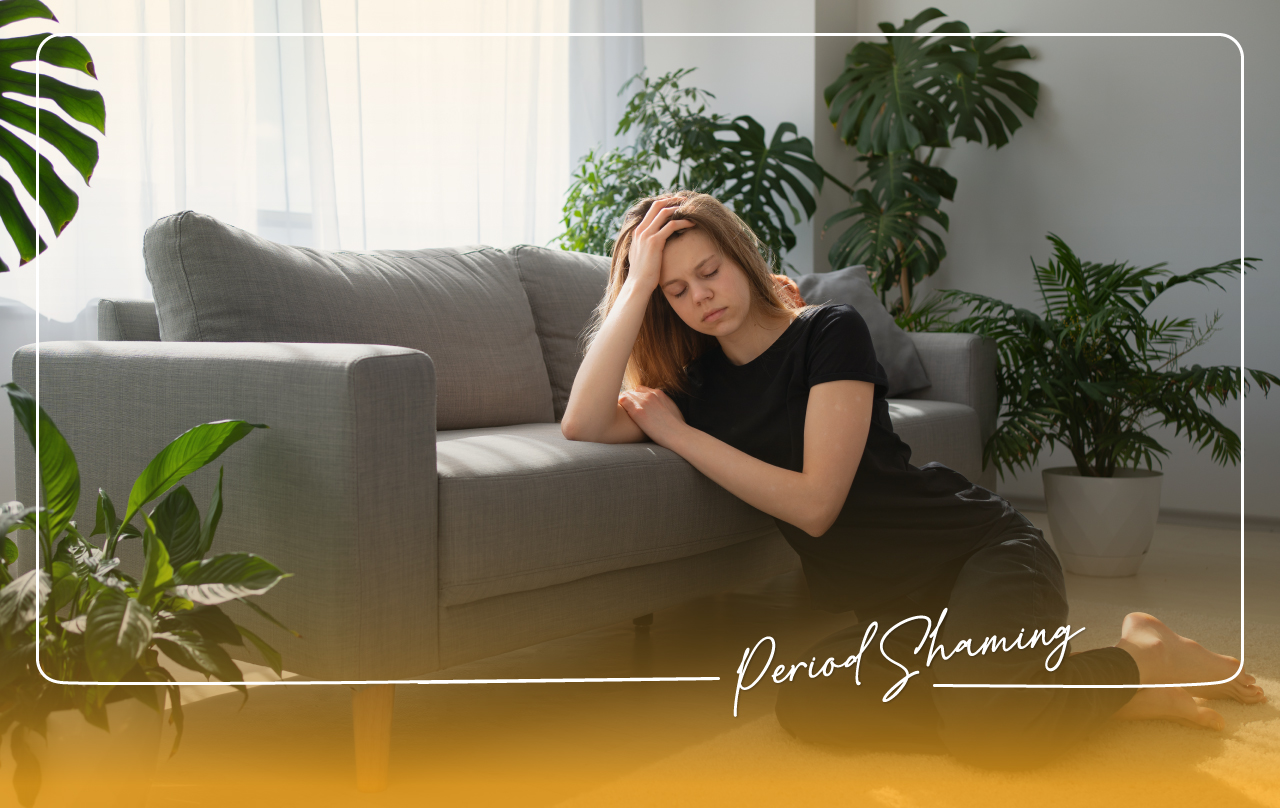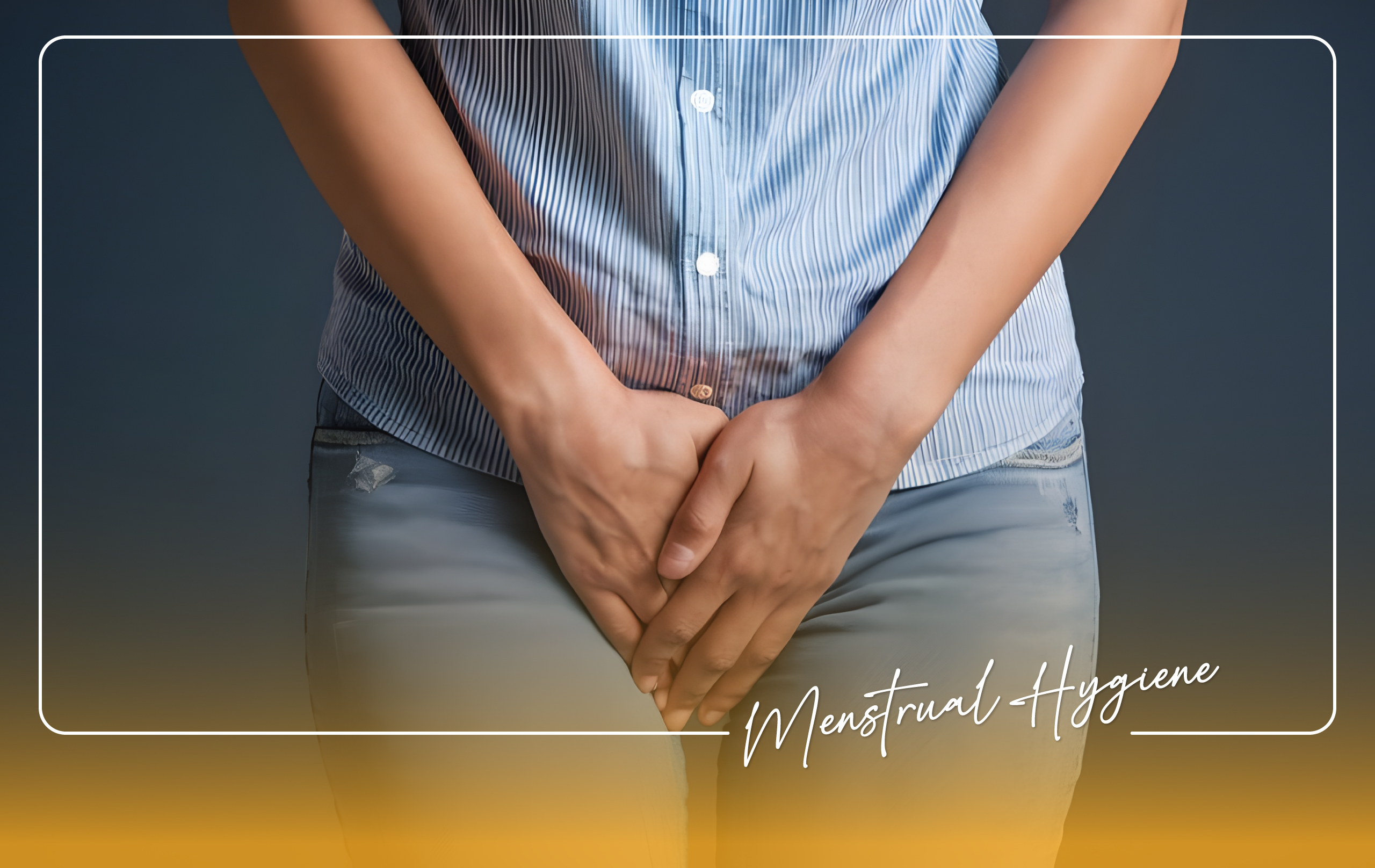
The onset of menstruation is a significant milestone in a young girl’s life, often bringing with it a mix of excitement, confusion, and anxiety. For many adolescent girls, this period marks the beginning of their reproductive years, and both teens and parents must understand the importance of menstrual health and hygiene.
Talking openly about menstruation is essential for fostering a positive attitude toward this natural process. By understanding the physical changes, managing hygiene, and addressing common challenges, adolescent girls feel more empowered, and parents can provide better support.
This guide offers practical advice for both teens and parents, helping them navigate menstrual health and hygiene confidently and easily.
Understanding Menstruation: What’s Happening in Your Body?
Menstruation is a natural biological process where the body sheds the lining of the uterus, resulting in bleeding from the vagina. It typically begins between 10 and 16, though some girls may start earlier or later.
The menstrual cycle: The menstrual cycle is usually about 28 days long but can vary from person to person. The first day of your period is considered Day 1 of your cycle. Most periods last between 3 and 7 days, but it’s normal for some girls to have shorter or longer periods.
Hormonal changes: Your body goes through hormonal shifts throughout the month, with estrogen and progesterone playing key roles in regulating the cycle. These hormones not only control the menstrual process but also influence mood, energy levels, and physical symptoms like cramps or bloating.
Menstrual flow: The amount of blood loss varies from person to person, with most girls losing about 2 to 3 tablespoons of blood during their period. Heavy or light periods are common and can change as the body adjusts to the cycle over time.
Talking About Periods: Why Open Communication is Key
For teens, talking about periods can sometimes feel uncomfortable or embarrassing. However, creating an environment where menstruation is discussed openly helps reduce stigma and normalize the experience.
For teens: Remember, periods are a natural part of growing up. If you have questions or concerns, don’t hesitate to ask a parent, guardian, or trusted adult. It's important to feel comfortable discussing any worries you might have, whether it's about pain, flow, or emotions during your period.
For parents: Encourage open conversations about menstruation with your daughter. Reassure her that periods are normal and that it’s okay to ask questions. The more informed and comfortable she feels, the better she will manage her menstrual health and hygiene.
Common Challenges During Menstruation
Menstruation brings a variety of physical and emotional symptoms. While some girls may experience mild discomfort, others may face more intense challenges. Understanding these symptoms can help both teens and parents manage them effectively.
-Menstrual cramps (dysmenorrhea): These are common during periods and are caused by the uterus contracting to shed its lining. While mild cramps can be managed with over-the-counter pain relievers, heat therapy, or light exercise, severe pain that interferes with daily activities should be discussed with a healthcare provider.
Mood swings: Hormonal changes during your menstrual cycle can affect your emotions, causing irritability, sadness, or anxiety. It’s normal to feel more sensitive or emotional during this time. Practising self-care and talking to someone about your feelings can help manage these changes.
Bloating and fatigue: Many girls experience bloating, fatigue, or changes in appetite during their period. Staying hydrated, eating a balanced diet, and getting enough rest can help alleviate these symptoms.
Irregular periods: It’s common for periods to be irregular in the first few years after they begin. If your period comes early, late, or not at all for a month or two, this is usually not a cause for concern. However, if you miss several periods in a row or experience unusually heavy or painful periods, it’s important to consult a doctor.
Menstrual Hygiene: Essential Practices for Health
Good menstrual hygiene is crucial for maintaining both physical health and comfort during your period. Proper care can prevent infections, discomfort, and other health issues.
1. Choosing the Right Period Products
There are various menstrual products available, and finding the one that suits you best is a matter of personal preference. Each option has its pros and cons, so it’s helpful to try different products to see what works for you.
Sanitary pads: Pads are absorbent products that stick to the inside of your underwear. They come in various sizes and absorbencies for light or heavy flow days. Pads are easy to use and are often a great option for beginners.
Tampons: Tampons are inserted into the vagina to absorb menstrual blood. They come in different absorbency levels and are discreet and convenient for girls who are comfortable with them. It’s important to change tampons every 4-6 hours to avoid the risk of toxic shock syndrome (TSS), a rare but serious infection.
Menstrual cups: Menstrual cups are reusable cups made of silicone or rubber that are inserted into the vagina to collect blood. They can be worn for up to 12 hours and are environmentally friendly and cost-effective in the long run.
Period underwear: This special underwear has built-in absorbent layers designed to hold menstrual blood. It can be worn alone or as backup protection with other menstrual products.
2. Changing Menstrual Products Regularly
It’s important to change your menstrual product regularly to prevent leaks, odours, and infections. For sanitary pads, it’s recommended to change every 4-6 hours. Tampons should be changed every 4-6 hours, and menstrual cups can be emptied every 8-12 hours, depending on flow.
For parents: Teach your daughter the importance of regular product changes, especially when she’s at school or on the go. Packing extra products in her bag can help her feel more prepared and confident.
3. Cleaning and Care
Maintaining cleanliness during your period is essential for preventing infections and irritation.
Daily hygiene: Wash the genital area with warm water and mild, unscented soap. Avoid using harsh soaps, wipes, or douches, which can upset the natural balance of bacteria and lead to infections.
After using the bathroom: Always wipe from front to back to prevent bacteria from spreading from the anus to the vagina, which can cause urinary tract infections (UTIs).
Disposal: Used sanitary pads and tampons should be wrapped in toilet paper or the packaging they come in and disposed of in a waste bin. Avoid flushing tampons or pads down the toilet as they can cause blockages.
Self-Care During Your Period
Taking care of your body and mind during your period is just as important as managing hygiene. Practising self-care can help alleviate discomfort and improve overall well-being.
1. Rest and Relaxation
Periods can be physically draining, so it’s important to allow yourself time to rest. Whether it’s taking a nap, lying down with a heating pad to ease cramps, or simply relaxing with a book, giving yourself space to unwind can make a big difference.
2. Staying Active
While intense exercise might not be appealing during your period, light physical activity like walking, yoga, or stretching can help improve circulation and reduce cramps. Exercise also releases endorphins, which can lift your mood and boost your energy levels.
3. Healthy Eating
Eating a balanced diet with plenty of fruits, vegetables, whole grains, and lean proteins can help maintain energy levels and reduce bloating. Foods rich in iron, such as spinach and red meat, are especially important during your period to replenish the iron lost in menstrual blood.
Avoid excessive caffeine, salty snacks, and sugary treats, which can worsen bloating, cramps, and mood swings.
4. Hydration
Drinking plenty of water helps prevent dehydration and can ease bloating. Staying hydrated also supports your body in flushing out toxins and maintaining overall health.
Dealing with Period Myths and Stigma
Unfortunately, many misconceptions and taboos still surround menstruation, leading to feelings of shame or embarrassment for some girls. It’s important to debunk these myths and approach periods as a normal, healthy part of life.
Periods aren’t dirty: Menstrual blood is just blood mixed with the lining of the uterus. It’s not dirty or harmful. Good hygiene practices are enough to keep everything clean and comfortable.
You can be active during your period: There’s no reason to stop exercising, swimming, or participating in other physical activities during your period. With the right menstrual products, you can stay active and comfortable.
Periods don’t make you “moody”: While hormones can cause mood swings, it’s not fair to label girls or women as “moody” or “overly emotional” because of their period. Understanding your emotions and practising self-care can help you manage these feelings.
When to Seek Medical Advice
While periods are a normal part of life, there are some situations where you should seek medical advice:
Extremely painful periods: If menstrual cramps are so severe that they interfere with daily activities, it could be a sign of an underlying condition like endometriosis or fibroids.
Very heavy bleeding: If you need to change your pad or tampon every hour for several consecutive hours or if your period lasts longer than 7 days, talk to a healthcare provider.
Irregular periods: If your periods are consistently irregular after the first few years or if you miss multiple periods without being pregnant, it’s worth getting checked out by a doctor.
Other symptoms: If you experience fever, dizziness, or unusual vaginal discharge during your period, consult




